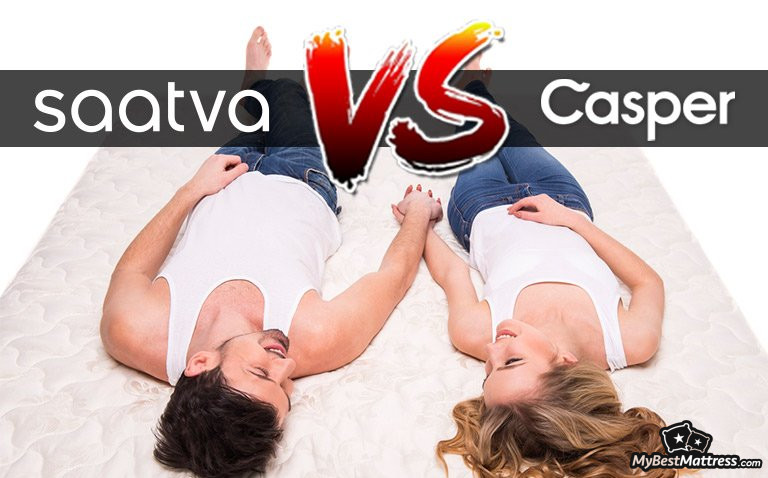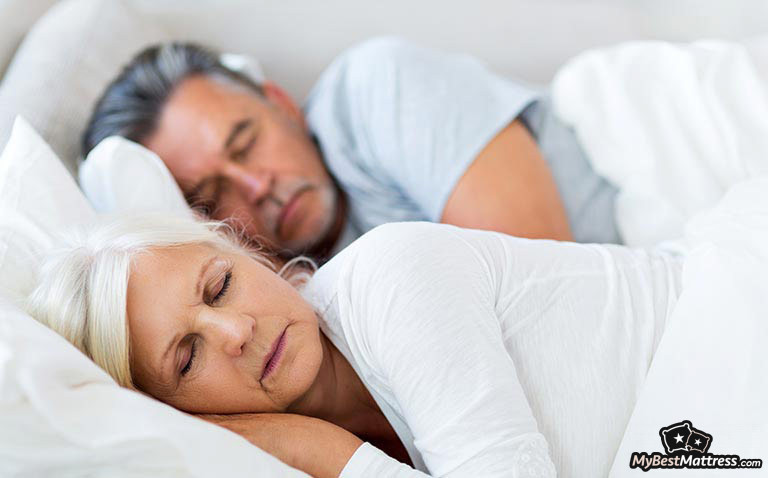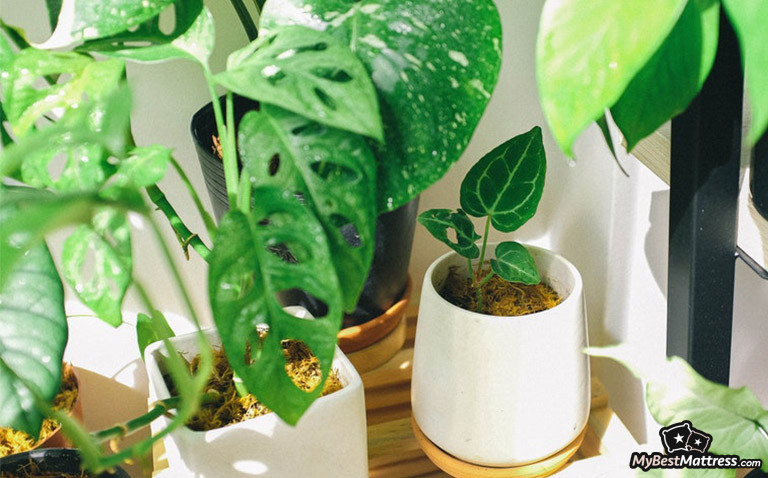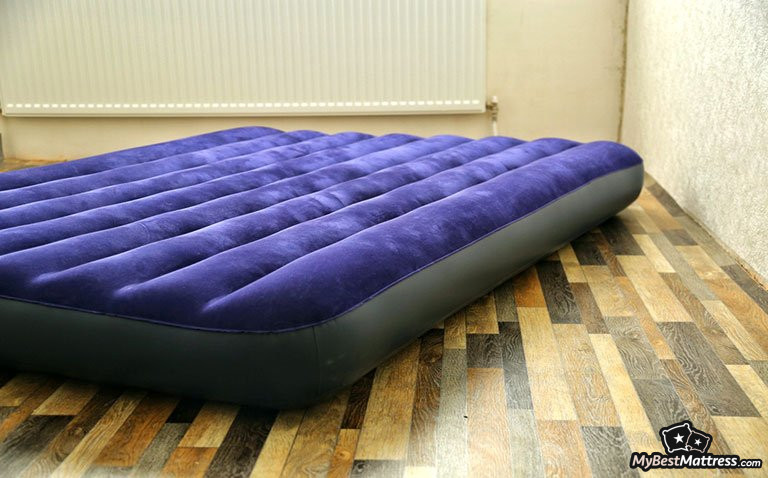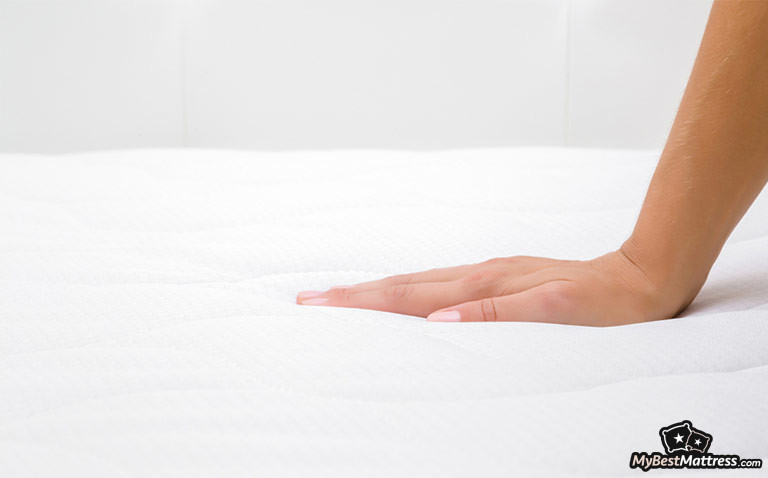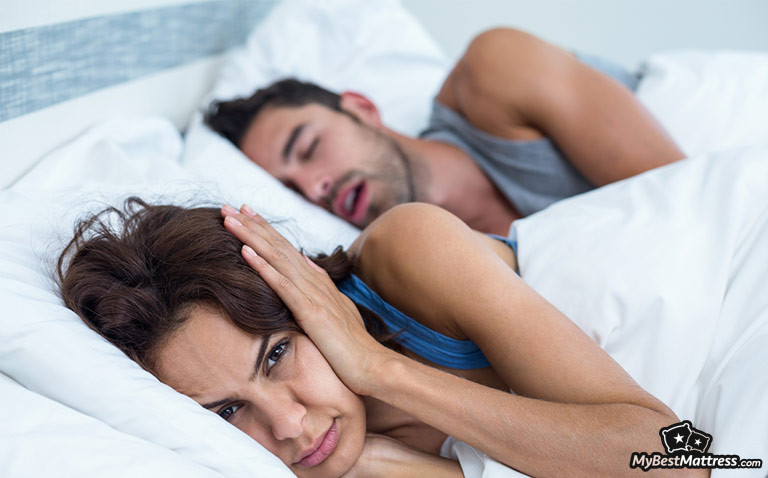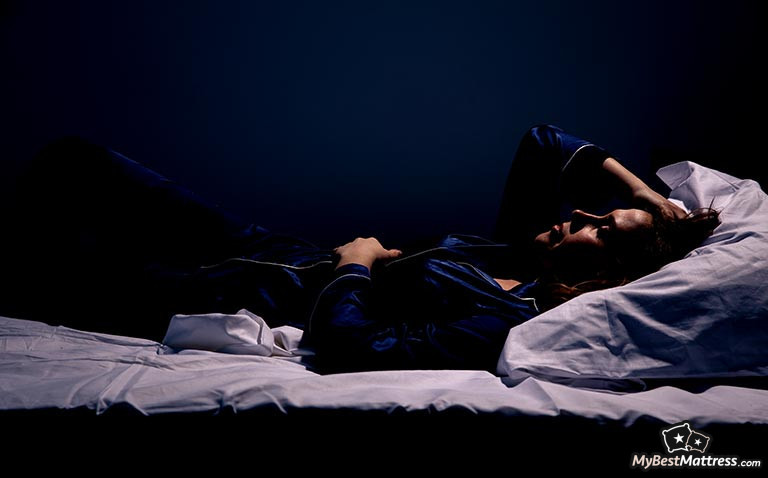
The current coronavirus pandemic is sweeping the entire world. It’s no secret that it causes a lot of issues and concerns - this is true for everyone from people who are working at the forefront of the pandemic, and those who have isolated themselves at home. What all of these people might have in common, however, is coronavirus insomnia.
While not necessarily a “coined” term in of itself, coronavirus insomnia refers to symptoms of insomnia[1] that have arisen in some people because of the virus in question. Coronavirus and anxiety go hand in hand, though, so it’s definitely not a surprising notion!
In this article, we’ll try to tackle the issue - first, we’ll figure out what coronavirus insomnia is, and how you can recognize it. Then, I’ll tell you about some of the possible ways you could deal with it. Let me say this in advance, though - if you’re looking to improve your sleep, in general, and deal with this problem at the same time, you should look into purchasing a brand new mattress.
What can be done to manage insomnia caused by stress?
People who are highly stressed can do a few things to improve their sleep. The first is to exercise regularly, finishing at least 2-3 hours before bedtime; exercise is known to be a great way to reduce stress while also regulating mood and many other aspects of health. Another thing is regular mindfulness meditation, or tailoring their meditation practice to coincide with when they get into bed. Multiple sleep-inducing guided meditations are available for this purpose. Another option is to put away all screens for at least 1 hour before bed and instead spend that time winding down with a relaxing bath or other calm activities.
Table of Contents
Coronavirus Insomnia - What is it?
Now, then - in order to establish and figure out some great ways of how one could deal with coronavirus insomnia, it’s important to first discuss the actual symptoms of such a condition.
Before we begin doing that, however, let’s just be clear on something - there is no such thing as “coronavirus insomnia” in the medical sense of the term. Meaning, the such a disease does not exist - instead, think about it as a combination of the coronavirus and anxiety. It’s just a term we’ll be using to quickly refer to a phenomenon - it’s NOT correct in the medical sense.
Now that we’ve got that out of the way… What are some possible symptoms of coronavirus insomnia?
Stress About COVID-19
One of the first things that should be analyzed is the way that you go about your days. Yes, days - not nights.
Thing is, if you’re someone who suffers a lot of stress daily, this can naturally lead to you developing insomnia down the road[1]. This is especially true for anyone who notices that their stressors (in other words - the stuff that makes you feel stressed and anxious during the day) translate into the nighttime, too.
Think about it - when was the last time that you lied in your bed, right before falling asleep, and caught yourself thinking about things that troubled you all throughout the day? Truth be told, for most people, this is actually a pretty common phenomenon!
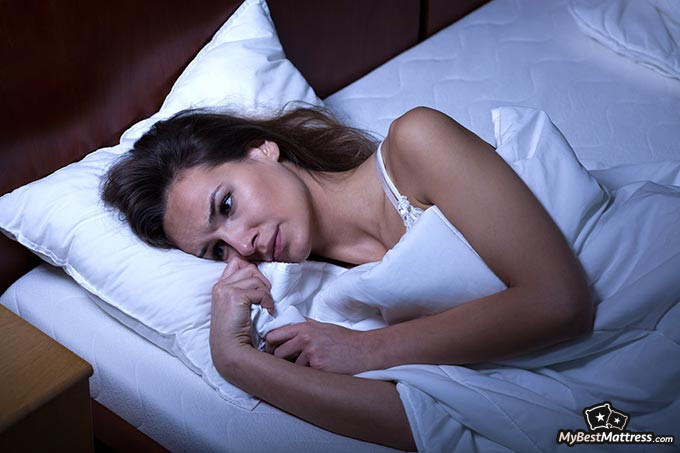
It’s normal to think about stressful situations and one’s troubles right before falling asleep - often, that’s the only “alone time” that we have throughout the day. That said, if your stress levels are already through the roof, this could surely lead to some sleepless nights, which then could translate into some even more severe problems, such as insomnia.
Now, it’s worth mentioning that coronavirus and insomnia don’t necessarily go hand in hand! The inner turmoil that you might be feeling because of the current pandemic MIGHT lead you to develop “coronavirus insomnia”, but this doesn’t mean that everyone who suddenly develops the medical condition does so because of COVID-19.
Latest Saatva Coupon Found:
UP TO $500 OFF
Limited-time Saatva Sale
We're sharing a limited-time Saatva mattress discount with our readers! Grab this deal & enjoy your new mattress with huge discounts.
Waking Up at Night Thinking About COVID-19 + Nightmares
One of the more obvious signs that you might be developing coronavirus insomnia is if you catch yourself waking up in the middle of the night, seemingly without a reason, only to find that your head is buzzing from thoughts about the virus and the current pandemic that’s taken over the world.
It does make sense, though - with the virus being such a major situation all over the world, it’s normal that most people think about it in their daily lives. Some may be more worried than others - perhaps you or your loved one works in the epicenters? Perhaps you were deemed an essential employee and thus have to go to work? Or maybe someone you know has come down with the virus?
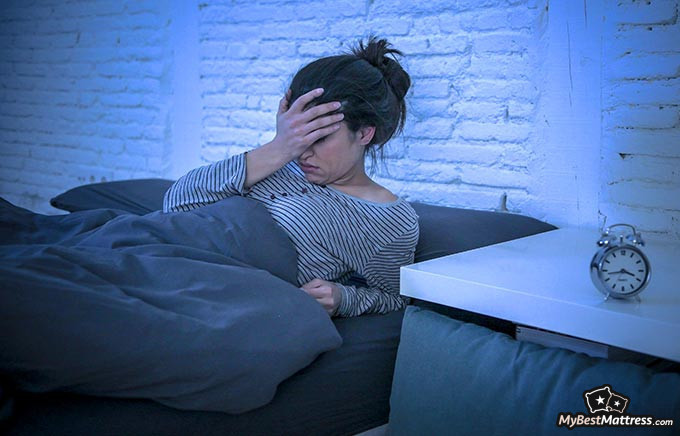
Either way, if such (and similar) thoughts possess your daily life, they might then perfectly well translate into you waking up in the middle of the night, often drenched in sweat and fear, not really knowing what’s going on or why you’ve suddenly jumped out of your bed.
Also, it’s worth mentioning that nightmares are a big thing, too! If you find that you’re constantly having coronavirus insomnia-related nightmares, these might lead to a nasty combination of coronavirus and anxiety - not ideal! While having nightmares about the entire situation does not automatically mean that you have COVID-19 insomnia, it might perfectly well be the beginning.
How to Deal With the Coronavirus Insomnia?
Now that we’ve figured out some of the most common and, dare I say, obvious coronavirus insomnia symptoms, we should turn towards discussing some of the better methods of how you could be dealing with the COVID-19 insomnia.
Truth be told, any and all types of insomnia should be tackled head-on by consulting with your physician - this should be something that goes without saying. Here, however, I want to tell you about some things that you could do in order to feel better, in a general sense, and to perhaps even prevent the “coronavirus insomnia” from developing, in the first place.

Did you know?
Have you ever wondered which mattresses are approved as the best for sleep?
See & compare TOP mattresses side by sideSpeak to Someone
If you watch any alternative (meaning, not mainstream media-based) news shows or listen to podcasts that talk about (or mention) the coronavirus and anxiety that the disease induces in many of us, you might have noticed that, oftentimes, it’s advised that you talk to somebody.
This isn’t just a scapegoat, either - it’s actually one of the best ways of how you could be dealing with the inner feelings of stress that do, eventually, lead to you losing sleep over the pandemic.
Thing is, when you talk to someone about the struggles that you’re facing, you’re likely to notice one, simple thing - they can relate to what you’re saying 100%. This is because, as noted earlier in this “coronavirus insomnia” article, this is an issue that effects THE ENTIRE WORLD. It’s actually quite unique, in that sense, too!
As people, we want to feel both understood, and that someone else can relate to what we are saying. By talking to other people, you’ll get just that, which, in turn, will lower your stress levels. Doing so might help you prevent from developing COVID-19 insomnia, in the long run!
Finding New Activities
If you’re someone who’s fortunate enough to be working from home during this time, you probably have a significant amount of more free time than you usually would. Well, what better time to take up some new hobbies and activities, hm?
Thing is, coronavirus and insomnia may go hand in hand just as much as your stress levels allow them to. If you spend the entire day thinking and stressing about it, you surely won’t be able to “turn it off” when nighttime comes. This could, yet again, lead to “coronavirus insomnia”, and any form of insomnia is straight-up bad - it could then manifest into cardiovascular diseases and other nasty stuff.[2]
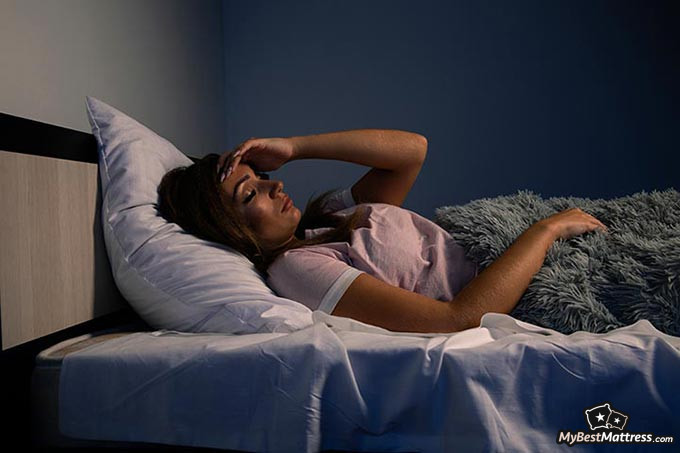
Back to what I was trying to say - If you feel that your stress levels are very high during the day, and that mostly has to do with the pandemic, you could actually use the opportunity and take up some new activities and hobbies.
What this will do is that it will not only fill the newly-discovered voids of time in your day, but also keep your brain occupied - if your mind is concentrated on some specific tasks, it won’t have time to stress out as much as it does now, which will - yet again - prevent you from developing coronavirus insomnia.
Turn Off Your Social Media
Now, I know this is going to be a tricky one, but hear me out.
If you’ve spent any time on social media these past couple of months, you’ve probably noticed that it’s starting to become nothing less but mass hysteria - clickbaity article titles, inflated numbers, false and misinformed predictions… The list goes on and on!
Even if you’re the calmest and most collected person in the world, these things can really get in your head. This is why one of the best choices that you could make during this pandemic is turning off all of your social media - at least for a few days.
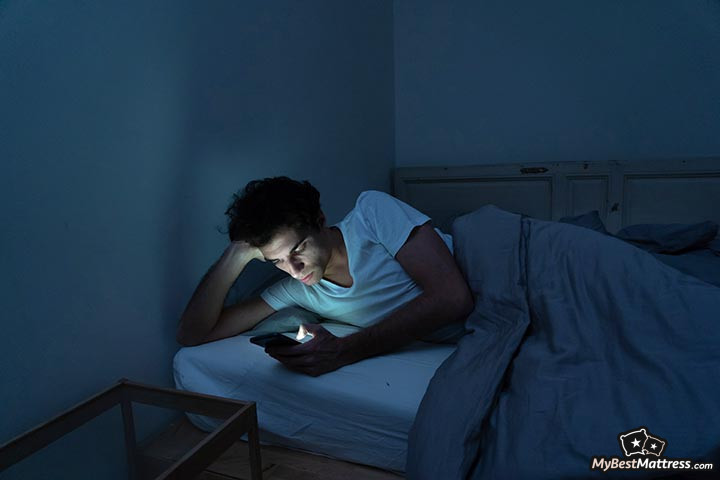
Doing so will “take you out of the madness” - you won’t see the virus being plastered into every single headline, and it’s bound to be the right thing to do for your mental health.
Furthermore, with such a social media hiatus, you lower your risk of developing coronavirus and insomnia-related issues. If you’re not constantly bombarded with information related to the novel coronavirus, your mind will basically have time to assess things properly, and not get fooled by those same flashy article titles and headlines mentioned before.
Changing Your Mattress
Unexpected? Perhaps. Effective? For sure.
Yes, changing your mattress may have positive effects on preventing coronavirus insomnia-like symptoms. In order to understand how that works, though, you need to take a step back and look at things from a broader perspective.
If you currently sleep on an old and worn mattress, chances are that you’re not really getting the best rest of your life. Loose springs and saggy edges can ruin your sleep quality pretty fast!
Now, while this may be unnoticeable from some people in normal, everyday circumstances, these issues become significantly amplified when you’re facing some huge levels of stress - coronavirus insomnia-related stress counts, too.
| SAATVA | PUFFY | NECTAR | |
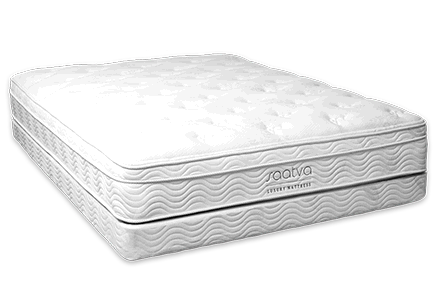 | 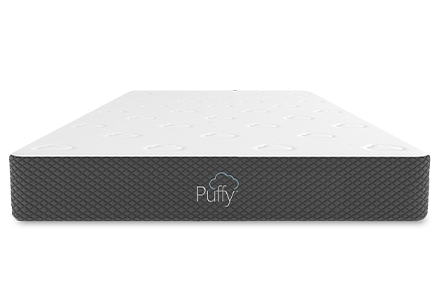 | 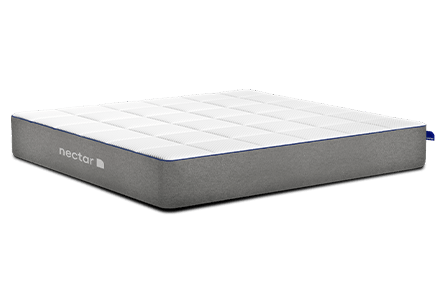 | |
| Innerspring | Memory Foam | Memory Foam | |
| All | All | All | |
| All Saatva Coupons | All Puffy Coupons | All Nectar Coupons | |
| Best innerspring mattress. Eco-friendly and responsive. | Good for back pain & all sleeper types | Noise and motion isolation. Good for all types of sleepers. | |
| Visit site Read Review | Visit site Read Review | Visit site Read Review |
Table: Top 3 mattress brands in the current industry
When you’re stressed out, things affect you differently - in other words, you become more sensitive to other issues that you might have, even if they are unrelated to the main stressor. Even if you’re actually stressing out over the COVID-19 pandemic, and think that you’re losing sleep because of it, the reality could be a bit different - your mattress might actually be at fault here.
Either way, if you’re not feeling comfortable in your bed, it's something that should be addressed, whether it be because of the “coronavirus insomnia”, or any other reason. There are some amazing mattresses out there - ones that will not only provide you with some sound sleep and amazing comfort, but also guarantee that you get enough quality rest.
Speaking of which, allow me to quickly tell you about the current mattress industry leaders - perhaps one of them will pique your interest?
- Saatva. If you’re someone who prefers sleeping on an old-school innerspring mattress, Saatva should be the go-to brand for you. Without a doubt, the company provides customers with some of the best innerspring mattresses in the entire industry - the beds are very breathable, shape-retaining and comfortable. If quality is what you like, then Saatva is surely the right choice for you.
- Puffy. Many sleepers out there prefer the feeling of soft memory foam - here, Puffy is one of the leaders. Puffy’s mattresses provide the optimal balance between comfort and support, allowing your body to contour to the surface of the bed and thus eliminating painful pressure points that might have developed because of your old mattress.
- Nectar. Nectar offers customers some of the most affordable mattresses out of all of the top-tier bed providers out there. The products sold by the brand aren’t only super-affordable, though - their quality is on-par with the industry leaders, and the beds are great at alleviating pressure and keeping your body properly aligned during the night.
The best part about all of this is that you won’t need to go to any mattress shops or retail stores - you can just pick the mattress that seems best for you, make an order and enjoy your new bed in no time!
Conclusions
While “coronavirus insomnia” might not be a real, clinical term, it’s something that many people around the world likely suffer from - the stress created because of the virus can lead to not only insomnia and sleeping troubles, but also much worse things, if left unaddressed.
Remember - plug off your social media, talk to your loved ones and consider getting yourself a brand new, top-tier mattress to increase your sleep quality. Best of luck!
Contributed By Patricia Celan, MD, Psychiatry Resident
Patricia is a post-graduate trainee in psychiatry, working in diagnosing and treating patients with psychiatric conditions. She is passionate about psychotherapy, especially in trauma, anxiety, and...
Read Full Bio...Scientific References
Contributed by Patricia Celan, MD, Psychiatry Resident1. David A. Kalmbach, Jason R. Anderson, and Christopher L. Drake: 'The impact of stress on sleep: Pathogenic sleep reactivity as a vulnerability to insomnia and circadian disorders'
2. Suzanne M Bertisch, Benjamin D Pollock, Murray A Mittleman, et al.: 'Insomnia with objective short sleep duration and risk of incident cardiovascular disease and all-cause mortality: Sleep Heart Health Study'
Leave your honest feedback
Leave your genuine opinion & help thousands of people to choose the best mattress. All feedback, either positive or negative, are accepted as long as they’re honest. We do not publish biased feedback or spam. So if you want to share your experience, opinion or give advice - the scene is yours!





